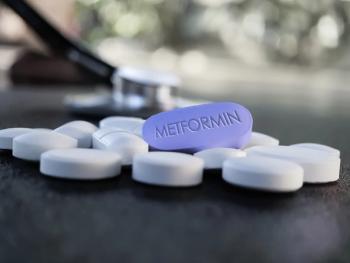
COVID-19 transmission during pregnancy rare
Infants born to mothers with COVID-19 infection during pregnancy often experienced positive birth outcomes from April 2020 to October 2020, and COVID-19 transmission was rare.
Birth outcomes were positive for infants born to mothers infected by COVID-19 during pregnancy, according to a recent study.
While respiratory viruses are rarely transmitted from mother to infant during pregnancy, evidence has emerged of an occasional mother-to-child transmission of COVID-19. COVID-19 infection during pregnancy could lead to placental vascular damage, potentially impacting fetal perfusion.
Maternal antibodies produced during COVID-19 infection may offer passive protection to infants, based on results from prior studies. However, the efficacy of these antibodies in infants and the duration of protection are unknown.
Investigators conducted a study to analyze the short- and long-term outcomes of COVID-19 infection during pregnancy on infants. Infants born from April 2020 to April 2021 to mothers infected with COVID-19 during pregnancy were included.
COVID-19 infection was repeatedly tested in women participating in the study from April 2020 to October 2020. Mothers were confirmed as having been infected during pregnancy if antibodies were present at delivery without previous history of symptoms, with a nasopharyngeal swab test used to determine infection.
Data was collected on mothers’ demographics, comorbidities, trimester of infection, and illness severity. Timing of infection was determined by the date of the first positive test during pregnancy. Categories of illness severity included: asymptomatic, mild disease, moderate disease, severe disease, and critical disease.
Infant data included birth weight, head circumference, gestational age (GA), clinical signs at birth, length, and hearing screening test results. Nasopharyngeal swab testing for COVID-19 occurred within 24 hours of delivery, while blood tests for hemoglobin and platelet count, liver function, and differential blood cell count occurred within 48 hours.
Follow-up testing occurred at 1, 3, 6, 9, and 12 months after delivery. After 90 days, infants underwent fundoscopy evaluation, abdominal ultrasound, and cerebral ultrasound.
Of the 2745 infants born during the testing period, 130 were born to mothers infected with COVID-19 during pregnancy, and 106 were born to mothers diagnosed more than 2 weeks before pregnancy. A majority of mothers infected had mild diseases.
No infants tested positive for COVID-19 within the first 24 hours after delivery. The median GA at birth was 39 weeks, mean length 49.8 cm, and mean head circumference 33.9 cm. Preterm birth occurred for 6 of the 106 infants, excluding them from the follow-up study.
Liver function tests, white blood cell count, hemoglobin, and platelets were normal in all but 1 infant, who was observed with low hemoglobin value. No abnormalities caused by COVID-19 were found during cerebral ultrasound, and no pathologic findings were found during fundoscopy evaluation and abdominal ultrasound in 95% of infants.
During the 12-month follow-up period, no infants experienced COVID-19 infection or recurrent respiratory infections. Investigators concluded that COVID-19 mother-to-infant transmission is a possible but rare occurrence.
Reference
Capretti MG, Marsico C, Gabrielli L, Vocale C, Arcuri S, Simonazzi G, et al. Infants born following SARS-CoV-2 infection in pregnancy. Pediatrics. 2022;150(5):e2022056206. doi:10.1542/peds.2022-056206
Newsletter
Access practical, evidence-based guidance to support better care for our youngest patients. Join our email list for the latest clinical updates.








